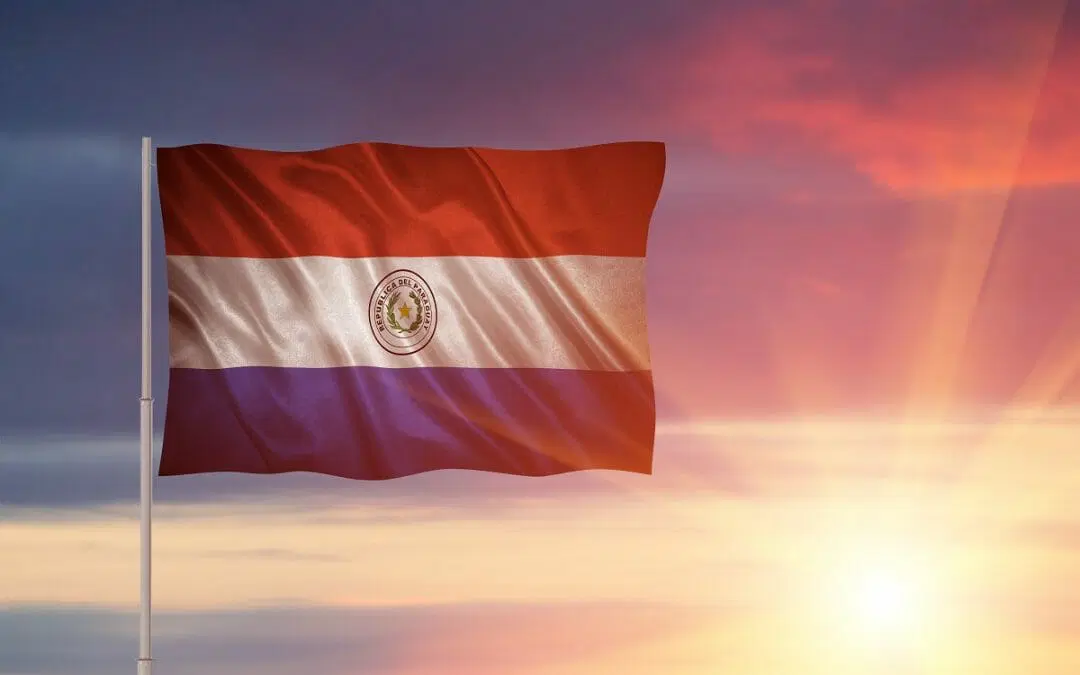Paraguay is undergoing a major transformation in its infrastructure, with government-led projects aimed at boosting the country’s connectivity, attracting foreign investment, and improving the quality of life for its citizens. The strategic focus on transport infrastructure, particularly roads, bridges, and river ports, positions Paraguay as a key hub in the heart of South America. These infrastructure upgrades are expected to open new economic opportunities, especially in real estate, logistics, and industrial development.
Here’s a closer look at the key projects and their potential impact.
1. National Road Expansion Project
The government has prioritized the construction and modernization of national highways to connect rural areas with major cities like Asunción, Ciudad del Este, and Encarnación. The goal is to improve trade routes and facilitate access to growing industrial hubs.
Key Road Projects:
- Ruta Bioceánica (Bi-Oceanic Corridor): A strategic highway connecting Brazil, Paraguay, and Chile, providing direct access from the Atlantic to the Pacific. This project will reduce transportation costs for exporters and open new markets for Paraguayan goods.
- Ruta Nacional No. 9 (Trans-Chaco Highway): Currently undergoing a complete overhaul, this highway links Asunción to the Chaco region and the Bolivian border, enabling easier access to key agricultural and energy resources.
- Expansion of Ruta 2 and Ruta 7: These highways connect Asunción with Ciudad del Este, one of the most active trade hubs in the country, where cross-border commerce with Brazil is vital for the economy.
2. Bridge Construction Projects
Bridges are critical to Paraguay’s transport infrastructure, especially in regions where rivers create natural barriers to trade and mobility. Several new bridge projects are underway to improve regional connectivity.
Notable Bridge Projects:
- Puente de la Integración (Bridge of Integration): Connecting Ciudad del Este (Paraguay) with Foz do Iguaçu (Brazil), this new bridge will ease congestion on the existing Friendship Bridge and enhance the flow of goods and tourists between the two countries.
- Puente Carmelo Peralta-Puerto Murtinho: This bridge is part of the Ruta Bioceánica project, linking Paraguay and Brazil across the Paraguay River. It will strengthen trade ties with Brazil’s Mato Grosso do Sul region and improve logistics for agricultural exports.
- Puente Ayolas-Ituzaingó: Connecting Paraguay with Argentina, this bridge will boost cross-border commerce and facilitate the transport of goods to regional markets.
3. Modernization of River Ports
Paraguay’s rivers—particularly the Paraguay and Paraná Rivers—play a crucial role in the country’s trade network, serving as key transport corridors for agricultural exports, such as soybeans and beef. Modernizing these river ports will enhance the country’s logistics capacity and reduce reliance on costly overland transport.
Key Port Upgrades:
- Port of Villeta: One of Paraguay’s busiest export hubs, it is undergoing expansion to increase cargo capacity and improve loading efficiency.
- Port of Concepción: Modernization efforts here aim to turn this northern river port into a key logistics hub for exports to Brazil and Bolivia.
- Asunción River Port: Plans include upgrading infrastructure to accommodate larger vessels and improve import-export operations for both raw materials and consumer goods.
Economic Impact and Investment Opportunities
The infrastructure modernization plan is expected to dramatically reduce logistics costs for businesses and improve access to previously underdeveloped areas. For investors, this means:
- Increased Demand for Residential and Commercial Real Estate: New transport connections will unlock growth in secondary cities and suburban areas, creating opportunities for residential and retail development.
- Growth in Industrial Real Estate: Enhanced infrastructure will make Paraguay an attractive destination for logistics centers, warehouses, and manufacturing facilities.
- Tourism Development: Improved connectivity will also boost tourism in regions like Encarnación, known for its cultural heritage and proximity to the famous Jesuit ruins.
A Unique Window of Opportunity for Foreign Investors
The Paraguayan government’s commitment to modernizing infrastructure is part of a broader strategy to attract foreign direct investment (FDI) and stimulate economic growth. This initiative, coupled with the country’s tax-friendly environment, offers a unique opportunity for international investors seeking high-growth markets.
Why Act Now?
- Infrastructure improvements will significantly increase property values in key areas.
- Newly connected regions will become prime targets for residential and commercial development.
- Government incentives for foreign investors are more attractive than ever.
Partner with Professionals to Maximize Your Investment
Navigating Paraguay’s real estate market can be complex. Not all areas will experience the same level of growth, and selecting the right projects is critical for long-term success.
Our team of experts specializes in identifying the best investment opportunities and ensuring a seamless process—from due diligence and legal support to project selection and market insights.
Contact us today to learn how you can be part of Paraguay’s exciting future.
FAQ: Paraguay Real Estate & Investments
1. Can foreigners buy land in border regions of Paraguay?
Foreigners can buy most types of property in Paraguay, but there are restrictions on owning land in border regions for security reasons. This applies primarily to agricultural and rural land near Brazil, Argentina, and Bolivia. However, residential and commercial properties in urban areas near borders are generally exempt from these rules.
2. How do I verify if a property has a clean title?
Property titles in Paraguay are not always well-documented, especially in rural areas. It’s essential to conduct a title search at the Public Registry and verify there are no liens or encumbrances. Working with a professional legal team ensures that you’re buying a property with a clear title.
3. What hidden costs should I be aware of when buying real estate in Paraguay?
When purchasing real estate in Paraguay, buyers should be aware of several additional costs beyond the purchase price. These include:
- Transfer Tax (Impuesto a la Transferencia de Inmuebles) – 1.5% of the declared value of the property. This tax is paid to the government during the transfer process.
- Notary Fees (Escribano Fees) – Typically range between 2% and 3% of the property value, depending on the complexity of the transaction and the notary’s involvement.
- Property Registry Fees – These fees cover the cost of registering the property under the new owner’s name at the General Directorate of Public Registries. They usually represent 0.5% to 1% of the property value.
- Municipal Taxes and Documentation Fees – Often minor but necessary for updating local records and paying pending municipal obligations.
- Potential Maintenance and Renovation Costs – Especially for older properties, buyers may face immediate expenses related to repairs, utility connections, or property upgrades.
Tip: Always request a full breakdown of all expected costs before finalizing a transaction to avoid surprises. Working with experienced professionals can help ensure a smooth and transparent process.
4. Are there eco-friendly or sustainable real estate developments in Paraguay?
Yes! Paraguay is seeing a growing trend in eco-friendly projects, particularly in Asunción and Encarnación. Some developers focus on energy-efficient buildings and green spaces, integrating sustainable architecture and solar energy solutions.
5. What are the best areas for long-term rental investments?
The hottest areas for rental investments are:
- Villa Morra and Carmelitas (Asunción) – Popular among expats and digital nomads.
- Encarnación – A growing tourism hub, especially for vacation rentals.
- Luque – An emerging residential area with proximity to Silvio Pettirossi International Airport.
6. Is it worth investing in agricultural land in Paraguay?
Absolutely. Paraguay is one of the world’s largest exporters of soybeans and beef. Farmland investments offer high returns, especially in regions like Alto Paraná and Itapúa. However, these investments require due diligence and local expertise.
7. Can I live in Paraguay while managing my real estate investments?
Yes! Paraguay offers an easy path to permanent residency, and many investors choose to relocate temporarily to manage their properties. The cost of living is low, and the country offers a peaceful, laid-back lifestyle.
8. What is the impact of infrastructure development on real estate prices?
Areas affected by new infrastructure projects—such as the Ruta Bioceánica or the Puente de la Integración—are experiencing rapid appreciation in property values. Investing early in these regions can result in significant returns within a few years.
9. How secure is the legal framework for foreign investors?
Paraguay has one of the most investor-friendly legal systems in Latin America. Property rights are protected under the law, and the country has a solid track record of honoring contracts. However, it’s essential to work with local experts to navigate the process.
10. Is there a real estate market for expats or digital nomads in Paraguay?
Yes! Asunción is becoming increasingly popular with expats and digital nomads due to its low cost of living and growing co-working spaces. Modern apartments with high-speed internet and proximity to cultural hubs are in high demand.






Leave a Reply